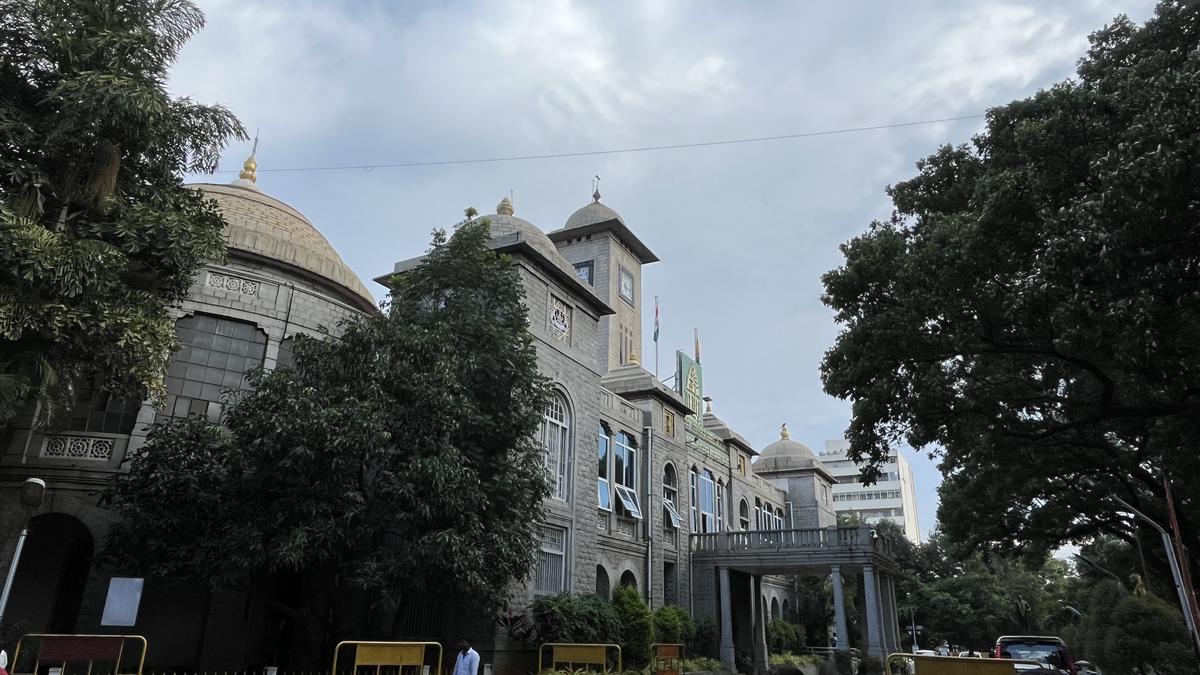
BBMP releases 12% of total pending bills of contractors for works completed under the civic body’s grants
The Hindu
The Bruhat Bengaluru Mahanagara Palike (BBMP) has released ₹411 crore, which is 12.62% of the total pending bills of the contractors who executed works under BBMP grants in Bengaluru.
The Bruhat Bengaluru Mahanagara Palike (BBMP) has released ₹411 crore, which is 12.62% of the total pending bills of the contractors who executed works under BBMP grants in Bengaluru. Between 2021 and 2023, works to the tune of ₹3,258 crore were carried out.
According to the order issued on September 15 (a copy of which is available with The Hindu), the BBMP has distributed the money to Chief Engineers (CE) of eight zones and BBMP central. The released amount pertains to the bills generated between April 2021 to September 2021. During a meeting that was held recently, BBMP Chief Commissioner Tushar Giri Nath had said the civic body would release ₹700 crore, which is 50% of total pending bills from April 2021 to March 2022. The total pending bills is valued at ₹1,300 crore.
The decision was taken to release the funds after the government announced payment to already beleaguered contractors who have been demanding clearance of dues. The announcement came despite four special investigation teams (SITs) probing the quality of works completed in the last three years under the BJP government. The contractors are however unhappy with the quantum of money that was released.
BBMP Contractors’ Association President, K.T. Manjunath said Mr. Giri Nath had promised to release 50% of ₹1,300 crore which has not been implemented. The contractors will not get the pending dues as they expected. The payment will be done based on seniority and only a few lucky ones will get the money first as political allegiance will also come into play during payment, he said. He urged the BBMP to release additional ₹200 crore immediately.
Clarifying about the release, Mr. Giri Nath said he had told about 50% release when the government had announced clearance of 50% of the total bill. But now, the government had ordered 75% payment of total individual bills. In the changed scenario, the BBMP will be releasing funds every month, he said. “We will be releasing another tranche of money in October. Month on month, the pending bills will be cleared,” he added.
The payment will be done by Zonal Chief Engineers, which means the files of the completed works will be inspected by them. This also means the SIT has little role to play in the scheme of things.

“Writing, in general, is a very solitary process,” says Yauvanika Chopra, Associate Director at The New India Foundation (NIF), which, earlier this year, announced the 12th edition of its NIF Book Fellowships for research and scholarship about Indian history after Independence. While authors, in general, are built for it, it can still get very lonely, says Chopra, pointing out that the fellowship’s community support is as valuable as the monetary benefits it offers. “There is a solid community of NIF fellows, trustees, language experts, jury members, all of whom are incredibly competent,” she says. “They really help make authors feel supported from manuscript to publication, so you never feel like you’re struggling through isolation.”

Several principals of government and private schools in Delhi on Tuesday said the Directorate of Education (DoE) circular from a day earlier, directing schools to conduct classes in ‘hybrid’ mode, had caused confusion regarding day-to-day operations as they did not know how many students would return to school from Wednesday and how would teachers instruct in two modes — online and in person — at once. The DoE circular on Monday had also stated that the option to “exercise online mode of education, wherever available, shall vest with the students and their guardians”. Several schoolteachers also expressed confusion regarding the DoE order. A government schoolteacher said he was unsure of how to cope with the resumption of physical classes, given that the order directing government offices to ensure that 50% of the employees work from home is still in place. On Monday, the Commission for Air Quality Management in the National Capital Region and Adjoining Areas (CAQM) had, on the orders of the Supreme Court, directed schools in Delhi-NCR to shift classes to the hybrid mode, following which the DoE had issued the circular. The court had urged the Centre’s pollution watchdog to consider restarting physical classes due to many students missing out on the mid-day meals and lacking the necessary means to attend classes online. The CAQM had, on November 20, asked schools in Delhi-NCR to shift to the online mode of teaching.









